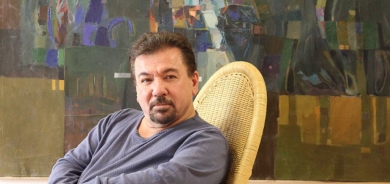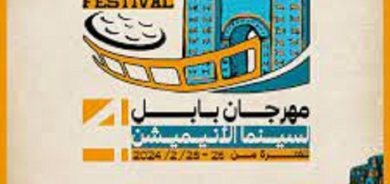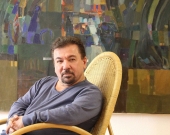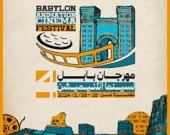Fraught ties with Arab world take centre stage as Enard wins top French literary award

A scholar of both Arabic and Persian, Enard’s ninth published work explores the thoughts of an insomniac Austrian musicologist as he lies at wake at night reminiscing and reflecting on a variety of topics, but most importantly his travels and experiences of the Middle East.
It had been the critics’ choice to scoop the prize – the oldest and most prestigious in the French speaking world whose remit is to award “the best and most imaginative prose work of the year”.
But in an award with a history of springing surprises, Enard beat out the bookies’ favourite Les Preponderants" (roughly translated as "The Principals"), by veteran Franco-Tunisian author Hedi Kaddour, a book that explores the long twilight of France’s colonial entanglement in north Africa by revisiting the Tunisia of the 1920s at a time of growing resentment of French rule.
In fact, the race for this year’s award was dominated by books about West's love-hate relationship with Islam and the Arab world.
Tobie Nathan, another of the four short-listed writers, explored the tale of the Jewish Cairo of the author’s childhood and the lost idyll of the city’s cosmopolitan tolerance in “Ce pays qui te ressemble” (“This country that you resemble”).
The only book by a woman to have made the shortlist, Nathalie Azoulai’s “Titus n’aimait pas Berenice” (“Titus does not love Berenice”), also has a Middle Eastern twist, riffing off the character of Berenice, the Roman-era queen of Palestine from Racine’s romantic tragedy.
But perhaps the book that addressed the theme in the most controversial and striking manner failed to even make the shortlist, despite long having been considered the favourite for the prize.
Boualem Sansal’s “2084”, a dystopian vision of a future Islamic caliphate that many critics have compared to George Orwell’s “1984”, is a biting portrait of an all-powerful theocratic state constantly in search of internal and external enemies.
The Algerian writer had the strong backing of Michel Houellebecq, France’s most famous literary provocateur, himself a Goncourt winner in 2010, who praised the book’s critique of “true Islamic totalitarianism”.
His own latest work, the bestselling “Submission”, controversially imagines France electing an Islamic government in 2022.
In keeping with tradition, the final decision was made at the belle epoque Drouant restaurant in central Paris after the jury chewed the fat over a lunch of lamb stew with olives and sundried tomatoes.
The Goncourt, named after the author, critic and publisher Edmond de Goncourt, has been in existence since 1903 and last year went to Lydie Salvayre for "Pas pleurer" ("Don't cry").
(FRANCE 24 with AFP)















